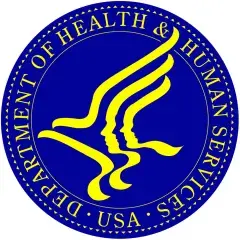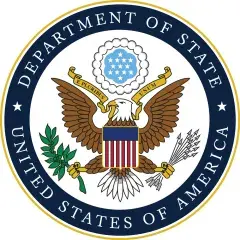These partners joined together to establish the Prevention Resource Finder to provide the public with resources to address terrorism and targeted violence in the Homeland.
These federal departments and agencies listed here have resources within the PRF on programs, tools, grants, training, and research to help communities prevent, detect, and mitigate acts of terrorism and targeted violence. Learn more about the Federal partners that work to keep you and your community safe:

The Department of Education (ED) promotes student achievement and preparation for global competitiveness by fostering educational excellence and ensuring equal access for all. It provides resources on protecting civil rights and combating discrimination and hate crimes against all students, including ethnic, national, and religious minorities.

The Department of Health and Human Services (HHS) seeks to enhance the health and well-being of all Americans by fostering sound, sustained advances in the sciences underlying medicine, public health, and social services. HHS offers grant programs and vets grant applications for other agencies related to the prevention of targeted violence and terrorism. Through the Safety Readiness Tool, the department cooperates with other agencies to help educators and the public evaluate school safety, create action plans, and boost protection and prevention.
Centers for Disease Control and Prevention (CDC)

The Centers for Disease Control and Prevention’s (CDC) Division of Violence Prevention utilizes and shares the best available data and conducts research to identify what works to prevent violence across the lifespan. CDC brings together partners and connects data, science, and action to inform the development, implementation, and sustainability of violence prevention strategies proven to be effective. CDC also provides tools, training, and resources designed to empower practitioners, organizations, and communities to help reduce risks for violence.
Substance Abuse and Mental Health Services Administration (SAMHSA)

The Substance Abuse and Mental Health Services Administration (SAMHSA) is an agency within the U.S. Department of Health and Human Services that is focused on advancing the nation’s behavioral health. The agency’s mission is to reduce the impact of substance use and mental illness on America’s communities. SAMHSA’s information-sharing platform, the Disaster Technical Assistance Center, helps states, U.S. territories, tribes, and local entities deliver effective mental health services following a crisis event. The platform also provides behavioral health training and consultation to assist entities with disaster preparation.

The Department of Homeland Security has a vital mission: to secure the nation from the many threats we face. This requires the hard work of more than 240,000 employees in jobs that range from aviation and border security to emergency response, from cybersecurity analyst to chemical facility inspector. The Department’s duties are wide-ranging, and our goal is clear - keeping America safe. DHS provides resources to prevent, detect, and mitigate acts of targeted violence and terrorism. Key offices that support the prevention mission within DHS headquarters include the Office of Intelligence and Analysis (I&A), the Office of Partnership and Engagement (OPE), the Office for Civil Rights and Civil Liberties (CRCL), the Science and Technology Directorate (S&T), and the Office of Strategy, Policy and Plans (PLCY). PLCY is also home to the Center for Prevention Programs and Partnerships (CP3), the primary coordinator of targeted violence and terrorism prevention for the Department. Departmental resources supporting prevention include funding, nationwide staff support, training, and educational materials to inform and raise awareness of the issues and to help keep your community safe.
Cybersecurity and Infrastructure Security Agency (CISA)

The Cybersecurity and Infrastructure Security Agency (CISA) leads the national effort to understand, manage, and reduce risks to cyber and physical infrastructure. CISA provides terrorism and targeted violence prevention and protection resources including information, guidance, risk assessments, security planning assistance, training, and exercises in a variety of threat- and audience-specific formats. CISA is also home to the Protective Security Advisors (PSAs) and Infrastructure Security Division, which administers active shooter, Office for Bombing Prevention, facility security, and school safety programs, including the interagency Federal School Safety Clearinghouse and its website SchoolSafety.gov to provide school communities with actionable recommendations and resources to create safe and supportive learning environments.
Federal Emergency Management Agency (FEMA)

The Federal Emergency Management Agency (FEMA) helps people before, during, and after disasters. The agency assists partners in understanding and reducing their disaster risk, leads the coordination of federal response efforts to stabilize communities after a disaster, and provides support for individuals and communities to build back and become more resilient than before. The FEMA Center for Domestic Preparedness Training contributes to violence prevention through service to the nation's first responder community, offering courses to build critical skills that responders need to function effectively in mass consequence events. FEMA is also the home of the Center for Faith Based and Neighborhood Partnerships which ensures prevention and other relevant resources address the concerns of faith communities.
Federal Law Enforcement Training Centers (FLETC)

The Federal Law Enforcement Training Centers (FLETC), through strategic partnerships, prepares the federal law enforcement community to safeguard America’s people, property, and institutions. FLETC provides career-long training to law enforcement professionals to help them fulfill their responsibilities safely and proficiently. Over the past 46 years, FLETC has grown into the nation’s largest provider of law enforcement training.
United States Secret Service (USSS)

The United States Secret Service (USSS) has an integrated mission of protection and financial investigations to ensure the safety and security of protectees, key locations, and events of national significance. The USSS is home to the National Threat Assessment Center, which advances prevention through robust partnerships with local, state, federal, and international law enforcement agencies and through research examining all forms of targeted violence and produces guides for establishing prevention programs.

The Department of Justice’s (DOJ) mission is to uphold the rule of law, keep our country safe, and protect civil rights. DOJ engages with state, local, tribal, and territorial partners, including through grants and training, about how to prevent targeted violence and build community awareness. Many of DOJ’s programs are dedicated to protecting the safety and civil rights of vulnerable groups, such as at-risk youth and those who face discrimination based on race, color, sex, disability, religion, familial status, or national origin.
Federal Bureau of Investigation (FBI)

The Federal Bureau of Investigation (FBI) is an intelligence-driven and threat-focused national security organization with both intelligence and law enforcement responsibilities. It offers reports, reference guides, and studies that examine the underlying motivations and behaviors of those who commit violent attacks, as well as resources aimed at violence prevention through threat assessment and threat management. The FBI’s resources help inform law enforcement, schools, faith-based organizations, and the public about becoming partners in the FBI’s efforts to disrupt, mitigate, and prevent Federal crimes, mass casualty attacks, and violent extremism.

The Department of Labor (DOL) fosters, promotes, and develops the welfare of the wage earners, job seekers, and retirees of the United States; improves working conditions; advances opportunities for profitable employment; and protects work-related benefits and rights. DOL supports initiatives that address the prevention of workplace violence.

The Department of State (DoS) protects and promotes U.S. security, prosperity, and democratic values internationally. It seeks to shape an international environment in which all individuals can thrive. The Department offers grant funds, training, forums, and resources to assist foreign partners with efforts aimed at preventing hate crimes, targeted violence, violent extremism, and terrorism. Information is available to cities, communities, researchers, organizations, law enforcement, and others interested in violence prevention.

The Department of the Treasury (Treasury) maintains a strong economy by promoting conditions that enable equitable and sustainable economic growth at home and abroad, combating threats to, and protecting the integrity of the financial system, and managing the U.S. government's finances and resources effectively. Treasury collaborates with financial institutions across the United States to discuss risks associated with financing domestic violent extremism (DVE), and produces resources for financial institutions, law enforcement, and state, local, tribal, and territorial governments to understand and mitigate financial risks associated with DVE and prevent targeted violence and terrorism within the United States.

The National Counterterrorism Center (NCTC) leads and integrates the national counterterrorism effort by fusing counterterrorism information, providing terrorism analysis, sharing information with partners, and driving government action to secure our national counterterrorism objectives. Operating under the Office of the Director of National Intelligence, NCTC provides a vital source of expertise in a constantly evolving threat environment.
